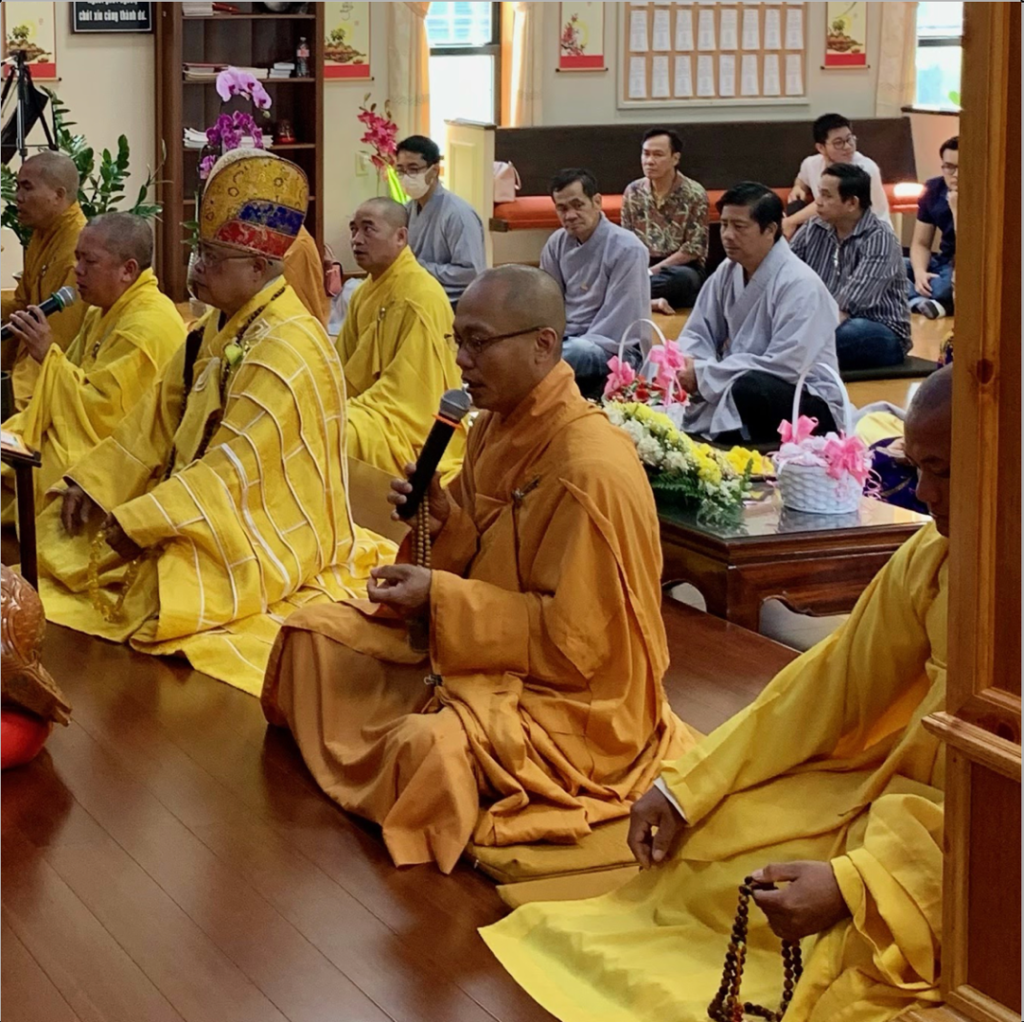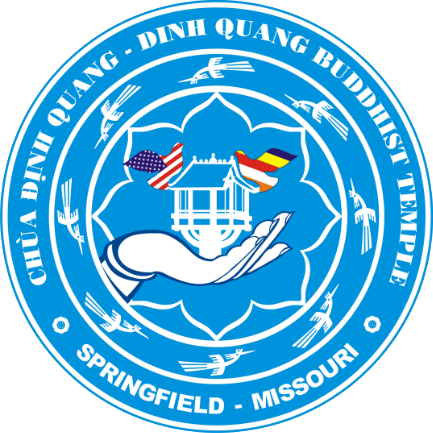
Vu Lan (Ulambana) has its origins in a sutra that describes Mahamaudgalyayana and his mother. After her death, Maudgalyayana perceived that his mother was reborn in the Realm of Hungry Ghosts. Moved by his gratitude for the care she had given to him as his mother, he sought to ease her great suffering. But every attempt failed.
Maudgalyayana went to the Buddha to ask how he could help his mother, and the Buddha replied that her situation required the energy and care of the entire Sangha. This coincided with the completion of the three months long retreat of intense and dedicated practice, so the monastic community had cultivated the energy and compassion to help Maudgalyayana’s mother. Together, they made offerings dedicated to relieving her suffering.
Seeing the good result of their efforts, Maudgalyayana found peace for himself, and the sangha found delight in supporting him and relieving his and his mother’s suffering. The Buddha then taught that our skillful actions can bring about wellbeing and healing to seven generations. This is a powerful reminder of the importance of spiritual community, especially the monastic Sangha, in embodying the Buddha’s teachings and supporting transformation. We continue this practice by making offerings and performing the Hungry Ghost ceremony. We also celebrate Ulambana as a day to honor our parents (both living and dead) and our ancestors.

Rose Ceremony
During our celebration, we are offered a rose in honor of our mothers, a red rose for those who are living or a white rose for those who have passed away. Monastics receive a yellow rose, recognizing that they belong to the Buddha’s family.
These roses help us remember that we are the continuation of our parents and ancestors; we are made of our parents, and they are always within and with us. We have all inherited and learned from our parents and ancestors, some qualities and habits leading to wellbeing, and others leading to suffering. Understanding this, we aspire to practice out of gratitude for this life in which we have heard the Buddha’s teachings, and for the healing of ourselves and all our ancestors.

Healing Hungry Ghosts
At Ulambana, we focus on our parents and ancestors, and we gather to chant and make offerings at the shrine of Tieu Dien Dai Sy. But the practice does not end when we finish the ceremony. The Most Venerable Thich Nhat Hanh also taught us another important aspect of healing the hungry ghosts.
The way we treat each other in a society, and the way a society is organized, can produce a hungry ghost in us psychologically. We can see this inside of ourselves and in our communities. Driven by disconnection with life, our ancestors, and with each other, we become desperate to find meaning and community. If we do not have a safe, compassionate, and wise community to support us, it is easy to become more alienated. We habitually think, do, and say things that are harmful and that increase the isolation. Cut off from life, we neither feel nor are safe. We easily become distrustful, even as we hunger for connection and understanding. We have become like a hungry ghost, always craving this connection but not able to satisfy ourselves.
The Hungry Ghost ceremony is an opportunity for us to reflect. How can we relieve the sufferings of ourselves and others? How can we create community where we can connect with one another in healthy ways? We return to the Five Mindfulness Trainings, and we contemplate the insight from the Hungry Ghost ceremony that it is possible for us to learn to live in such a way that brings about release from suffering in ourselves and in the world.
